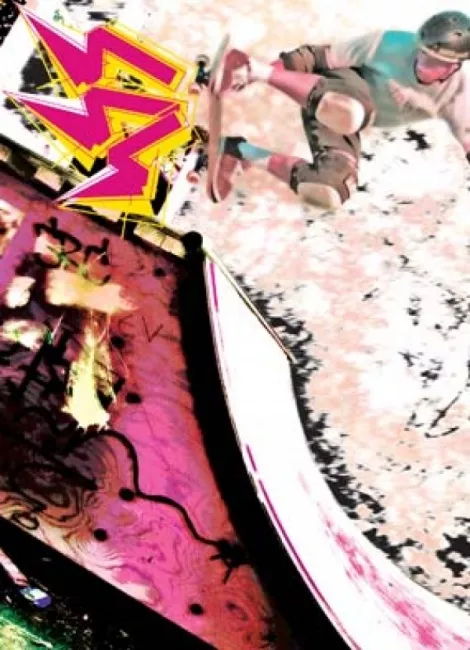
The Salt Lake Valley Health Department amended its noise pollution ordinance on Aug. 7, banning all personal “sporting ramps” in the county as egregious community noise polluters. The news came as quite a shock to owners of back yard sport ramps— but they’re not going down quietly.
Nick Hale, a 30-year-old sales representative for Salomon Snowboards, owns a mini-ramp in his back yard. “Skating a couple of hours on [my mini-ramp] is my version of shooting some hoops in my back yard to relieve some stress after work,” Hale says.
Like many skateboard enthusiasts who have invested money and time into the construction of a skate ramp, Hale was caught off guard by the change. On Aug. 18, two weeks after the health department acted, Hale got a letter in the mail notifying him he could no longer use his personal skate ramp because it violated the new noise ordinance. “There was no outreach whatsoever,” Hale says of the ordinance change. Prior to altering the noise code, health department officials held two public comment periods. But the news never reached Hale that skating on his $5,000 sport ramp would from now on be considered noise pollution.
“I said, ‘Is there any way I can work with you guys on this?’” Hale says. “And their answer was straight up ‘No way.’ ” Hale says he was told if he wanted to skate he should take advantage of public skate parks. “Why,” he asks, “has skateboarding been segregated when people still play basketball in their driveway and there are parks and schoolyards nearby?”
Hale wonders why skate ramps would be banned outright, while other backyard recreational sports are simply regulated through curfews. Skateboarding is a sport synonymous with youth culture, and skating in back yards helps keep kids off the streets. The health department’s noise ordinance references a number of backyard sports and recreation activities, including swing sets, barbecues and basketball. All have a curfew of 10 p.m. and cannot be started again until 7 a.m. the following day. But backyard ramps are simply out. “If [my ramp] was any noisier [than those activities], I never would have built it in the first place,” Hale says.
But for an activity to qualify as noise pollution doesn’t necessarily mean it surpasses a certain decibel level, explains Royal DeLegge, director of environmental health for the Salt Lake Valley Health Department. “In this case, it’s not defined by decibel level. The noise from these [sporting ramps], it’s a very pervasive type of noise. It’s generally considered a nuisance by people who live in close proximity to them.”
People have complained of the repetitive noise of the ramps. They consider it annoying.
For Hale, however, a persistent noise still doesn’t explain why sport ramps get singled out. “I’ve got a neighbor with 12 kids who jump on a trampoline for hours every day, and that’s repetitive,” he says. “But I never once considered complaining about it.”
DeLegge, however, says the ordinance isn’t discriminating against skaters. Over the past two years, he says, health officials have actually debated a broad range of noise considerations, including the use of leaf blowers and even the decibel level at the EnergySolutions center. As for other backyard activities—like trampoline jumping—DeLegge says they have never been an issue.
“The bottom line is we don’t get complaints about those other activities.”
Since the actions behind the noise ordinance are complaint-driven, Hale has been disappointed that a neighbor of his may have chosen to complain to the health department instead of speaking to him directly first. Now, simply by having a sport ramp on their property, homeowners like Hale could face civil violations and potentially a Class B misdemeanor. Hale has organized an online petition at SLCMiniramp.com to rally skaters and private property advocates alike to help overturn the ordinance.
“This is just insanity,” Hale says. “And I’m going to fight it as long as I can.”